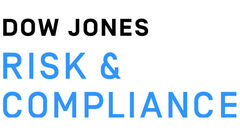
Celebrities, rogues, sanctions, and the Panama Papers
History’s biggest data leak is a timely reminder for companies to undertake a thorough review of their corporate compliance policies and programs.

History’s biggest data leak is a timely reminder for companies to undertake a thorough review of their corporate compliance policies and programs.
The release of the Panama Papers has created one of the biggest global scandals in recent years. The media loves these kind of stories. And – despite being incensed by tax evasion and corruption – perhaps the public does, too, given our fascination with drama and the lives of the rich and powerful.
The story first broke on April 3 of this year, following a year-long investigation carried out by the International Consortium of Investigative Journalists (ICIJ), the German newspaper Süddeutsche Zeitung, and more than 370 journalists from 76 countries.
The leak of more than 11.5 million financial and legal records from Panamanian law firm Mossack Fonseca exposes the offshore holdings of 12 current and former world leaders, associates of presidents, and high profile individuals.
Furthermore, it sheds light on the shadowy and secretive world of offshore companies which can be used to facilitate kleptocracy, drug trafficking, terrorism, corruption, and other criminal activities.
The scandal has already resulted in Iceland’s Prime Minister Sigmundur Davíð Gunnlaugsson stepping aside from public office following public outrage that his family had sheltered money offshore.
It has also put a spotlight on many celebrities, world leaders, and powerful figures that have used the services of Mossack Fonseca such as soccer star Lionel Messi, actor Jackie Chan, President of the Ukraine Petro Poroshenko, and two cousins of Syrian President Bashar Assad.
Whilst it is not illegal to own an offshore company, and there is no evidence of criminal activity amongst many of the parties named in the data leak, some others may have less honest motives.
According to the ICIJ, the Panama Papers “…also include at least 33 people and companies blacklisted by the US government because of evidence that they’d been involved in wrongdoing, such as doing business with Mexican drug lords, terrorist organizations like Hezbollah, or rogue nations like North Korea and Iran.”
Disturbingly, this also includes companies implicated in supporting the Syrian regime: United Arab Emirates-based Pangates International Corp., for example, and several of its affiliates – all clients of Mossack Fonseca – have been added to sanction lists by the United States and European Union for supplying aviation fuel to aid the Assad regime.
Initial indications from the investigation are that Mossack Fonseca was undertaking insufficient checks rather than willfully avoiding compliance obligations. However, this scandal provides salutary lessons for all of us to ensure that sufficient checks are being made on our business partners.

Bans on indirect provisions? PEP List? Adverse Media? Comprehensive security for your transactions with AEB software and extended content from Dow Jones.
The leaked data also highlights the complexity of the modern business environment involving elaborate ownership structures and shell companies. It also underscores the need for government agencies to increase transparency in the ownership of the firms they incorporate.
Such complex organizational structures represent a great challenge for companies striving to proactively evaluate with whom they are doing business. Organizational complexity raises a range of issues including those relating to fraud, corruption, money laundering, and sanctions-related risk.
In terms of sanctions, the Office of Foreign Assets Control’s 50 Percent Rule states that if an entity is 50% or more owned by a blocked entity, then it is also blocked. Guidance issued in August 2014 clarified that this is aggregated in the case of ownership by more than one blocked entity. Similarly, the EU also applies a 50 percent rule.
This means that companies need to have a clear understanding of the beneficial ownership structure of their business partners. Quite a challenge and a significant due diligence burden when considering the structure of business networks that have been created by law firms such as Mossack Fonseca.
You can read more about sanctioned ownership challenges in this article.
Given the sheer volume of data that has been released, it is difficult – even several months after the scandal first broke – to know the full impact of the Panama Papers. With more analysis of the database and additional disclosures, it seems likely that there will be further consequences and that this story will run for quite some time. Regulators will undoubtedly also be reviewing relevant legislation and sanctioned parties, so companies need to keep an eye out for potential changes.
The Panama Papers scandal is a reminder that companies need to have effective corporate compliance policies and programs in place to mitigate risk exposure in areas such as fraud, corruption, money laundering, and sanctions. Such risks are not new of course, but it’s a challenging and increasingly complex, global business environment, and things are not getting any easier.
You can read more about effective internal compliance programs (ICP) in this article.